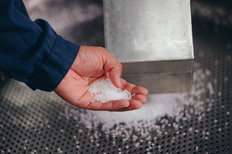- Borealis started producing renewable polypropylene in December 2019.
- Neste supplies renewable propane to Borealis' Kallo plant.
- ISCC Plus certification was awarded to Kallo and Beringen plants.
- Henkel aims to reduce fossil fuel-based virgin plastics by 50% by 2025.

Introduction
Borealis has commenced the production of polypropylene (PP) using renewable feedstock from Neste at its facilities in Kallo and Beringen, Belgium. This initiative marks the first instance of Borealis replacing fossil fuel-based feedstock in its large-scale commercial PP production.
ISCC Plus Certification
The Belgian plants have received ISCC Plus certification from the International Sustainability and Carbon Certification (ISCC) organization. This certification verifies that the renewable feedstock used is 100% renewable and sustainably produced, including traceability to the point of origin.
Production Process
Neste produces renewable propane using its proprietary NEXBTL™ technology and supplies it to Borealis' propane dehydrogenation plant in Kallo. The renewable propane is then converted to renewable propylene and subsequently to renewable PP at the Kallo and Beringen plants.
Value Chain Collaboration
Borealis collaborates closely with upstream and downstream partners, including Neste and Henkel, to drive the circular economy. This collaboration enables downstream partners in various industries, such as consumer packaging, automotive, healthcare, and appliances, to commercialize products with a lower carbon footprint.
Henkel's Commitment
Henkel, a leader in the adhesives sector, has integrated renewable PP into its packaging strategy. This move aligns with Henkel's goal to reduce its use of fossil fuel-based virgin plastics by 50% by 2025.

